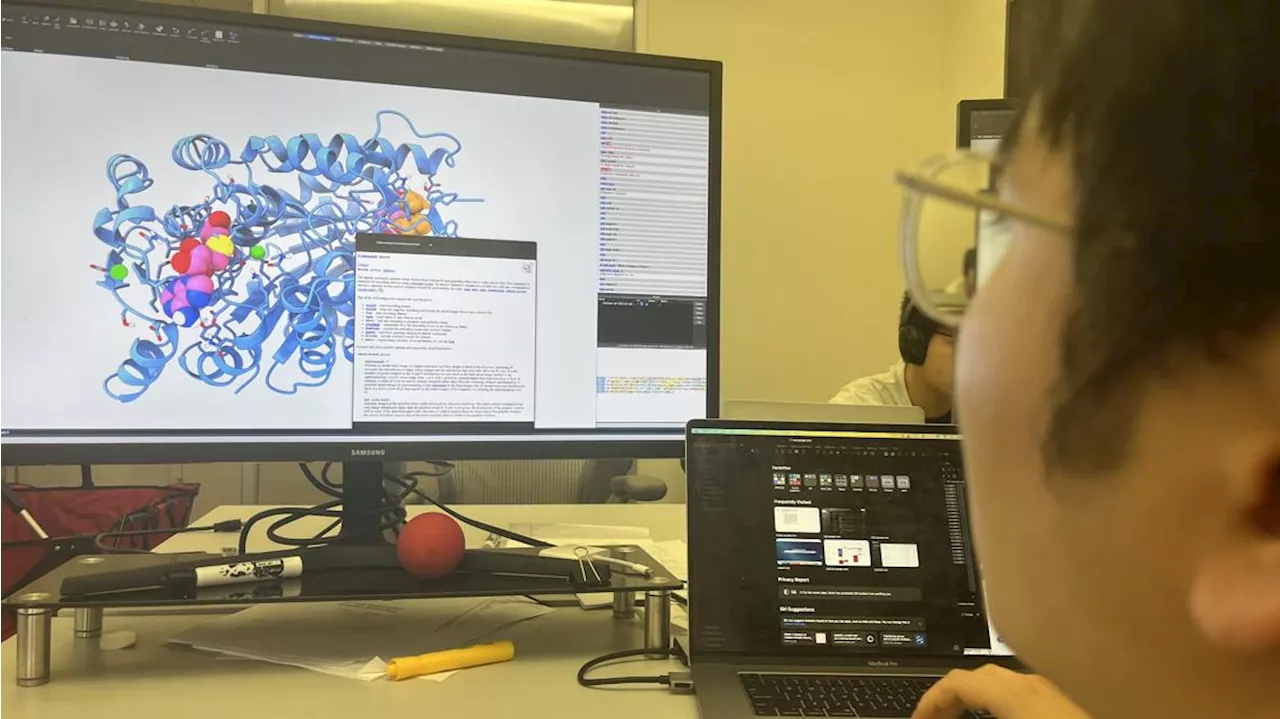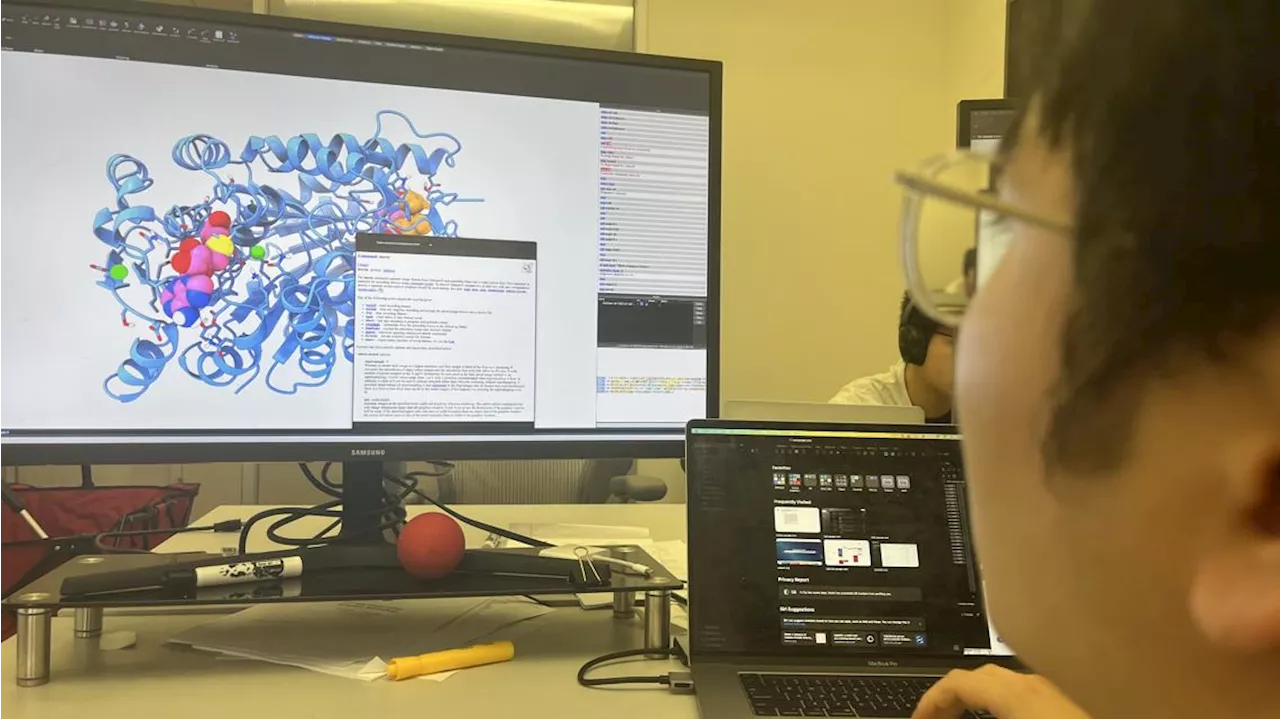A research team has created an innovative method to control tiny magnetic states within ultrathin, two-dimensional van der Waals magnets -- a process akin to how flipping a light switch controls a bulb.
Imagine a future where computers can learn and make decisions in ways that mimic human thinking, but at a speed and efficiency that are orders of magnitude greater than the current capability of computers.
Tian was corresponding author of a paper, titled"Tunneling current-controlled spin states in few-layer van der Waals magnets," that was published today in, an open access, multidisciplinary journal dedicated to publishing high-quality research in all areas of the biological, health, physical, chemical, Earth, social, mathematical, applied and engineering sciences.
Specifically,"this tunneling current not only can control the switching direction between two stable spin states, but also induces and manipulates switching between metastable spin states, called stochastic switching," says ZhuangEn Fu, a graduate student in Tian's research lab and now a postdoctoral fellow at the University of Maryland.
"In our work, we've developed what you might think of as a probabilistic bit, which can switch between '0' and '1' based on the tunneling current controlled probabilities," Tian says."These bits are based on the unique properties of ultrathin 2D magnets and can be linked together in a way that is similar to neurons in the brain to form a new kind of computer, known as a probabilistic computer.
The study was funded through grants from the U.S. Department of Energy; Wyoming NASA EPSCoR ; the National Science Foundation; and the World Premier International Research Center Initiative and the Ministry of Education, Culture, Sports, Science and Technology, both in Japan.ZhuangEn Fu, Piumi I. Samarawickrama, John Ackerman, Yanglin Zhu, Zhiqiang Mao, Kenji Watanabe, Takashi Taniguchi, Wenyong Wang, Yuri Dahnovsky, Mingzhong Wu, TeYu Chien, Jinke Tang, Allan H. MacDonald, Hua Chen, Jifa Tian.
Physics Quantum Physics Energy Technology Spintronics Research Computers And Internet Computer Science Information Technology
United Kingdom Latest News, United Kingdom Headlines
Similar News:You can also read news stories similar to this one that we have collected from other news sources.
 Tunable quantum anomalous Hall effects in van der Waals heterostructuresThe quantum anomalous Hall effect (QAHE) has unique advantages in topotronic applications, but realizing the QAHE with tunable magnetic and topological properties for building functional devices is still a key scientific challenge. Through first-principles calculations, researchers have predicted a candidate material that meets these requirements.
Tunable quantum anomalous Hall effects in van der Waals heterostructuresThe quantum anomalous Hall effect (QAHE) has unique advantages in topotronic applications, but realizing the QAHE with tunable magnetic and topological properties for building functional devices is still a key scientific challenge. Through first-principles calculations, researchers have predicted a candidate material that meets these requirements.
Read more »
Researchers found an 1886 Lake Michigan shipwreck with the help of historic news accounts(CNN) — The remains of a ship that sank over 100 years ago has been discovered off the shores of western Michigan – thanks in part to archival news articles that provided clues to the ship’s location.
Read more »
 'Revolutionizing how we manufacture goods' | AI being used by UT researchers to create Alzheimer's drugResearchers at the University of Texas are using AI tools to help speed up the production of medicine used to treat Alzheimer's disease.
'Revolutionizing how we manufacture goods' | AI being used by UT researchers to create Alzheimer's drugResearchers at the University of Texas are using AI tools to help speed up the production of medicine used to treat Alzheimer's disease.
Read more »
 How UT researchers are using AI to create an Alzheimer's drugResearchers at the University of Texas are using AI tools to help speed up the production of medicine used to treat Alzheimer's disease.
How UT researchers are using AI to create an Alzheimer's drugResearchers at the University of Texas are using AI tools to help speed up the production of medicine used to treat Alzheimer's disease.
Read more »
 Researchers say blood test good at detecting colon cancer, not at finding polypsA WellSpan doctor looked into the test to see where it stacks up against colonoscopies.
Researchers say blood test good at detecting colon cancer, not at finding polypsA WellSpan doctor looked into the test to see where it stacks up against colonoscopies.
Read more »
 Researchers Discover 270-Million-Year-Old Amphibian FossilResearchers at the Smithsonian's National Museum of Natural History have stumbled upon the fossilized skull of a 270-million-year-old amphibian forebear. The fossil has been identified as a new proto-amphibian species named Kermitops gratus, in tribute to the iconic Muppet character, Kermit the Frog.
Researchers Discover 270-Million-Year-Old Amphibian FossilResearchers at the Smithsonian's National Museum of Natural History have stumbled upon the fossilized skull of a 270-million-year-old amphibian forebear. The fossil has been identified as a new proto-amphibian species named Kermitops gratus, in tribute to the iconic Muppet character, Kermit the Frog.
Read more »
